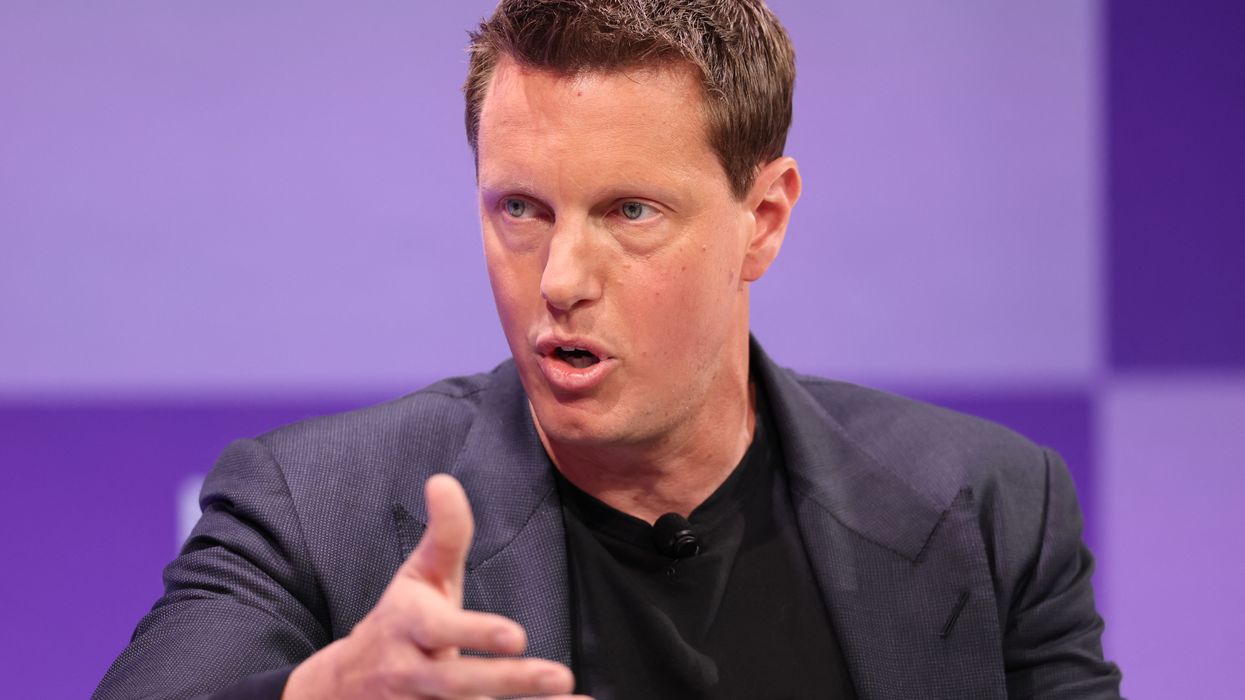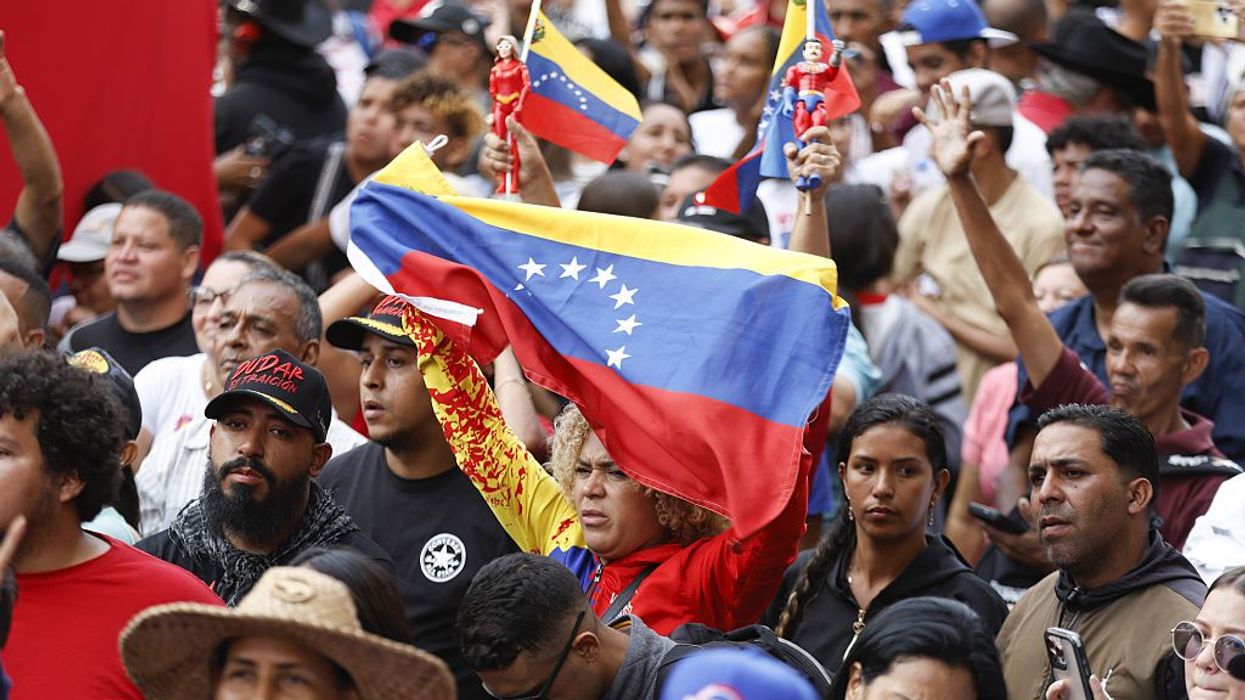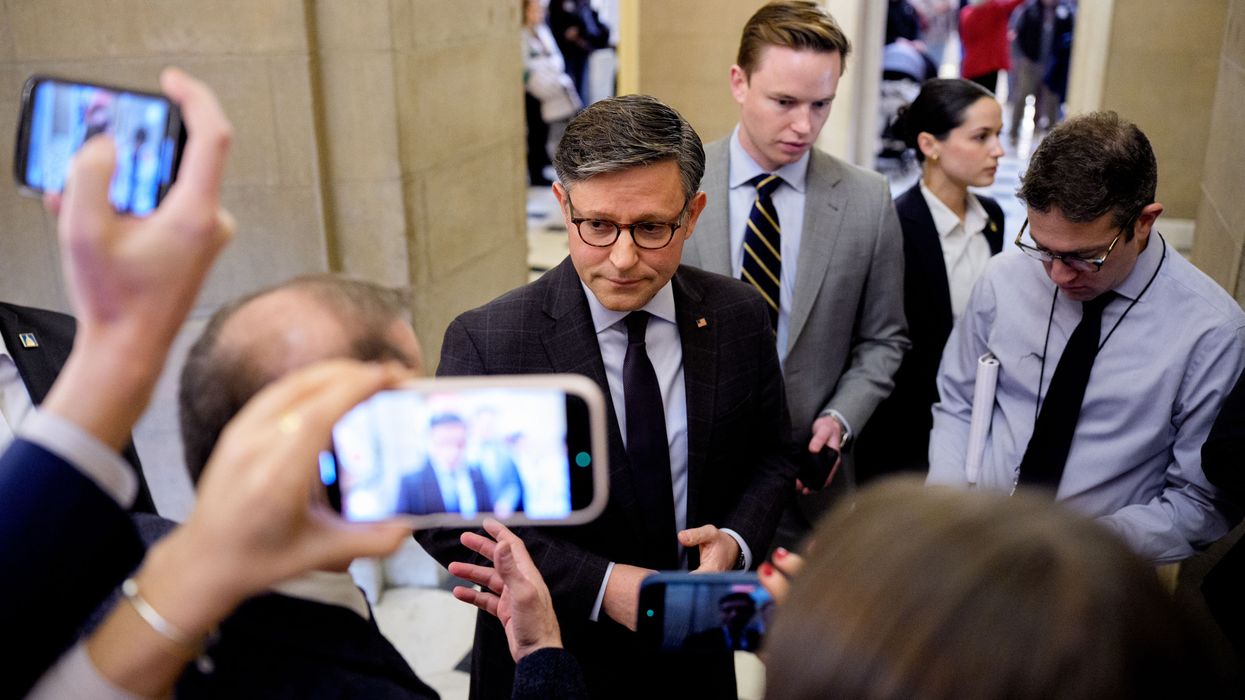November, 17 2017, 12:30pm EDT

For Immediate Release
Contact:
Lisa Nurnberger, Media Director, lnurnberger@ucs.org
The Road to Katowice: Increasing Global Ambition, Political Will on Climate Change Action
Statements by Alden Meyer, Rachel Cleetus, Peter Frumhoff at UCS
BONN, GERMANY
The United Nations' annual climate talks, this year known as COP23, aimed at making progress on developing the rules for implementation of the Paris Agreement--a worldwide commitment to reduce global warming emissions and limit the increase in global temperature to well below 2 degrees Celsius--is reaching its conclusion in Bonn.
Below is a statement by Alden Meyer, director of strategy and policy at the Union of Concerned Scientists (UCS), and one of the foremost experts on the UN climate change negotiations.
"At this year's climate talks, the Fijian presidency helped us build the vessels needed to carry us towards a clean energy future. Now it's up to ministers and heads of state to fill these vessels with the political will to increase ambition on climate action. Countries agreed to launch the Talanoa Dialogue, aimed at identifying ways to close the substantial gap between commitments countries have put forward to reduce their emissions and the much higher level of ambition needed to meet the temperature limitation goals established in the Paris Agreement. This intensive process will culminate at next year's climate summit in Katowice, Poland, and must lay the groundwork for countries to strengthen their Paris commitments by 2020.
"Progress was made on developing the Paris Agreement implementation rules, but the pace of negotiations must pick up significantly if the rulebook is to be finalized in Poland next December as planned. But little progress was made on the critical issue of ramping up financial and capacity-building support to help developing countries deploy clean energy and other climate solutions, and to adapt to the mounting impacts of climate change; this must be a much higher priority going forward.
"Heads of state and ministers will have numerous opportunities over the next year to demonstrate climate leadership, starting with the One Planet Summit in Paris next month hosted by President Macron of France. Other key moments include the ministerial consultations organized by the Fijian presidency; two Ministerial on Climate Action (MOCA) meetings hosted next spring and fall by Canada, China, and the European Union; and the G7 and G20 summits to be held in Canada and Argentina, respectively.
"In the wake of President Trump's decision to withdraw the U.S. from the Paris Agreement no other nation has announced they will follow in his footsteps, and even war-torn Syria announced last week they will join the Paris Agreement. This leaves President Trump in not-so-splendid isolation on one of the most critical global issues.
"The White House event earlier this week promoting fossil fuels as a climate change solution was incredibly tone-deaf, and contrasted sharply with the conciliatory statement made yesterday by the United States undersecretary of state. Meanwhile, a broad coalition of U.S. cities, states, businesses, and NGOs here in Bonn projected a forceful message to the world that they intend to ensure the United States meets its emissions reduction commitments under the Paris Agreement, despite President Trump's irresponsible and ignorant stance on climate change. The U.S. is already nearly halfway to meeting its pledge to cut global warming emissions by 26 to 28 percent below 2005 levels by 2025, but much more must be done to reach that goal.
Below is a statement by Rachel Cleetus, lead economist and climate policy manager at UCS.
"With the costs of wind and solar power dropping dramatically, market trends are driving a global ramp-up of renewable energy. Nevertheless, this year global carbon dioxide emissions rose 2 percent after remaining flat for the last three years, making it clear that nations need to act with greater urgency in sharply reducing global warming emissions. Countries will need to greatly increase the ambition of their current emissions reduction commitments by 2020 to give the world a chance of meeting the long-term temperature goals of the Paris Agreement, with the highly anticipated scientific report on the subject by the Intergovernmental Panel on Climate Change (IPCC) expected to feed into this process when issued next October.
"Meanwhile, along with other parts of the world, this year the U.S. experienced some of the worst climate and extreme weather-related events to date. Hotter, drier conditions--often a fingerprint of climate change--contributed to a record-breaking wildfire season in the West. Similarly, many parts of the U.S. including Texas, Louisiana, Florida, Puerto Rico and the U.S. Virgin Islands, were ravaged by intense hurricanes fed by warmer waters.
"Unfortunately, many low-income and disadvantaged frontline communities around the world, who have contributed the least to global warming emissions, are now facing the greatest climate risks while lacking the resources needed to effectively protect themselves. That's why the Paris Agreement calls for wealthier nations, who bear a greater responsibility for emissions, to commit to aiding developing countries cope with climate change threats and transition to a clean energy economy. However, a robust financial support package for developing countries remains elusive and is slated to be the main point of contention leading up to the December 2018 climate talks in Poland."
Below is a statement by Peter Frumhoff, chief climate scientist and director of science and policy at UCS.
"We are now seeing dramatically increased interest in examining the extent fossil fuel producers should be held accountable for destruction inflicted by their products, fueled in part by the latest attribution research conducted by UCS and other scientists. Lawsuits--including in the U.S., Germany and Norway--are being increasingly utilized to help drive action on climate change and recoup the cost of damages. Given the current gridlock on providing financing to aid frontline communities endangered or irreparably harmed by climate change impacts, it begs the question of who should be paying the associated costs."
Click here to view a recent paper by UCS examining the science of attributing climate change impacts to major fossil fuel producers. The results of their first-of-its-kind study recently published in Climatic Change, which finds that top fossil fuel producers such as ExxonMobil and Chevron are responsible for as much as half of the global surface temperature increase and roughly 30 percent of global sea level rise. The study examined attribution during two time periods--before and after 1980, when investor-owned fossil fuel companies were aware of the threat posed by their products.
The Union of Concerned Scientists is the leading science-based nonprofit working for a healthy environment and a safer world. UCS combines independent scientific research and citizen action to develop innovative, practical solutions and to secure responsible changes in government policy, corporate practices, and consumer choices.
LATEST NEWS
After Trump Vow to Intervene, Kushner Linked to Paramount's Hostile Bid for Warner Bros.
"The correct option is neither Paramount nor Netflix buy Warner," said one antitrust advocate.
Dec 08, 2025
Paramount Skydance on Monday launched a hostile bid to take over Warner Bros. Discovery shortly after US President Donald Trump publicly expressed skepticism of Netflix's proposed deal to acquire parts of the media company—and pledged to intervene in the federal review process.
"It is a big market share, there’s no question about it," Trump said late Sunday of Netflix's proposed $83 billion purchase of Warner Bros. Discovery's (WBD) film studio and streaming business.
"I’ll be involved in that decision," the president added.
Hours after Trump's comments, Paramount CEO David Ellison—the son of billionaire GOP megadonor and close Trump ally Larry Ellison—announced the hostile bid to buy WBD, attempting to subvert the Netflix deal by taking an all-cash, $30-per-share offer directly to Warner Bros. shareholders.
Observers expressed alarm over the seeming coordination between the president and Paramount's chief executive as the fight over Warner Bros. escalates. Trump reportedly favored Paramount to win the bidding war for WBD, which owns CNN, HBO Max, and other major assets.
Axios reported Monday that "Affinity Partners, the private equity firm led by Jared Kushner, is part of Paramount's hostile takeover bid for Warner Bros Discovery, according to a regulatory filing."
"Affinity Partners was not mentioned in Paramount's press release on Monday morning about its $108 billion bid," Axios noted, "nor were participating sovereign wealth funds from Saudi Arabia, Abu Dhabi, and Qatar."
Ellison was reportedly at the White House last week urging the Trump administration to block Netflix's bid for WBD.
Speaking to CNBC on Monday, Ellison said that "we've had great conversations with the president about" Paramount—which controls CBS News thanks to a merger that the Trump administration approved—potentially becoming the owner of CNN, a frequent target of Trump's vitriol.
CNBC: Do you think the president embraces the idea of you being the owner of CNN given his criticism for that network?
DAVID ELLISON: Ah -- we've had great conversations with the president about this but I don't want to speak for him in any way, shape, or form pic.twitter.com/FdwBzfP3eO
— Aaron Rupar (@atrupar) December 8, 2025
Nidhi Hegde, executive director of the American Economic Liberties Project, said in response to Ellison's remarks that "the correct option is neither Paramount nor Netflix buy Warner."
"The president inserting himself in the deal is obviously problematic, regardless of the parties involved," said Hegde. "If Netflix’s Ted Sarandos, who Trump called a great person, finds a way to appease him, that is also not good!"
US Sen. Elizabeth Warren (D-Mass.) expressed similar concerns about Trump's potential corruption of the regulatory process. The proposed Netflix deal is expected to face a review by the US Justice Department's Antitrust Division, where top officials were recently ousted for "insubordination" amid criticism of agency leaders' corporate-friendly approach to merger enforcement.
"Is that an open invite for CEOs to curry favor with Trump in exchange for merger approvals?" Warren asked after Trump pledged to insert himself into the Netflix-WBD review process.
"It should be an independent decision by the Department of Justice based on the law and facts," added Warren, who called the Netflix-WBD deal "an anti-monopoly nightmare."
Keep ReadingShow Less
Top Brazilian Official Warns Trump of 'Vietnam-Style' Regional Conflict If He Attacks Venezuela
"The last thing we want is for South America to become a war zone," said Celso Amorim, chief foreign policy adviser to Brazilian President Luiz Inácio Lula da Silva.
Dec 08, 2025
A top Brazilian official is warning President Donald Trump that a US military attack on Venezuela could easily spiral out of control into a "Vietnam-style" regional conflict.
Celso Amorim, chief foreign policy adviser to Brazilian President Luiz Inácio Lula da Silva, said in an interview published on Monday by the Guardian that a US military strike on Venezuela would inevitably draw nations throughout Latin America into an armed conflict that would be difficult to contain.
"The last thing we want is for South America to become a war zone—and a war zone that would inevitably not just be a war between the US and Venezuela," he said. "It would end up having global involvement and this would be really unfortunate."
Amorim added that "if there was an invasion, a real invasion [of Venezuela]... I think undoubtedly you would see something similar to Vietnam—on what scale it’s impossible to say."
While acknowledging that Venezuelan President Nicolás Maduro is disliked by many other South American leaders, Amorim predicted that even some of Maduro's adversaries would rally to his side in the face of destabilizing military actions by the US government.
He also predicted that anti-US sentiment would surge throughout the continent in the event of an invasion, as there is still major resentment toward the US for backing right-wing military coups during the Cold War in Chile, Brazil, and other nations.
"I know South America," he emphasized. "Our whole continent exists because of resistance against foreign invaders."
The Trump administration in recent weeks has signaled that it plans to launch attacks against purported drug traffickers inside Venezuela, even though reports from the US government and the United Nations have not identified Venezuela as a significant source of drugs that enter the United States.
The administration has also accused Maduro of leading an international drug trafficking organization called the Cartel de los Soles, despite many experts saying that they have seen no evidence that such an organization formally exists.
Trump late last month further escalated tensions with Venezuela when he declared that airspace over the nation was "closed in its entirety," even though he lacks any legal authority to enforce such a decree.
The Washington Post reported on Monday that Maduro is remaining defiant in the face of US pressure, as he is refusing to go into exile despite the threat of an attack on his country.
According to the Post's sources, Maduro's inner circle of allies "shows no signs of imminent collapse," even as he has limited his public appearances and beefed up his personal security amid fears that he could be the target of an assassination attempt.
Keep ReadingShow Less
Mike Johnson Touts $901 Billion Military Budget Plan After Gutting Medicaid, SNAP
"At such a time, bipartisan agreement to provide additional funds to the Pentagon would deliver a cruel message to the American public," advocacy groups warned.
Dec 08, 2025
Republican congressional leaders unveiled a sprawling military policy bill late Sunday that would authorize $901 billion in US military spending for the coming fiscal year, just months after GOP lawmakers and President Donald Trump pushed through the largest-ever cuts to Medicaid and federal nutrition assistance.
House Speaker Mike Johnson (R-La.), who aggressively pushed cuts to Medicaid by peddling false claims of large-scale fraud, touted the 3,086-page National Defense Authorization Act (NDAA) as legislation that would "ensure our military forces remain the most lethal in the world."
The bill, a compromise between House and Senate versions of the annual legislation, would authorize $8 billion more in US military spending than Trump asked for in his 2026 budget request.
If passed, the 2026 NDAA would pump billions of dollars more into the Pentagon, a cesspool of the kinds of waste, fraud, and abuse that Johnson and other Republicans claim to be targeting when they cut safety net programs, stripping health insurance and food aid from millions. The Pentagon has never passed an independent audit and continues to have "significant fraud exposure," the Government Accountability Office said earlier this year.
"The surge in Pentagon spending stands in sharp contrast to the drastic cuts in healthcare and food assistance programs imposed by the reconciliation package."
Final passage of the NDAA would push total military spending authorized by Congress this year above $1 trillion, including the $150 billion in Pentagon funds included in the Trump-GOP budget law enacted over the summer.
Last month, as Common Dreams reported, a coalition of watchdog and anti-war groups implored Congress not to approve any funding above the originally requested $892.6 billion, warning that additional money for the Pentagon would enable the Trump administration's lawless use of the military in US streets and overseas.
The groups also noted that "the surge in Pentagon spending stands in sharp contrast to the drastic cuts in healthcare and food assistance programs imposed by the reconciliation package."
"At such a time," they wrote in a letter to lawmakers, "bipartisan agreement to provide additional funds to the Pentagon would deliver a cruel message to the American public, one out of step with Democratic messaging over healthcare, reconciliation, and the shutdown."
Keep ReadingShow Less
Most Popular


